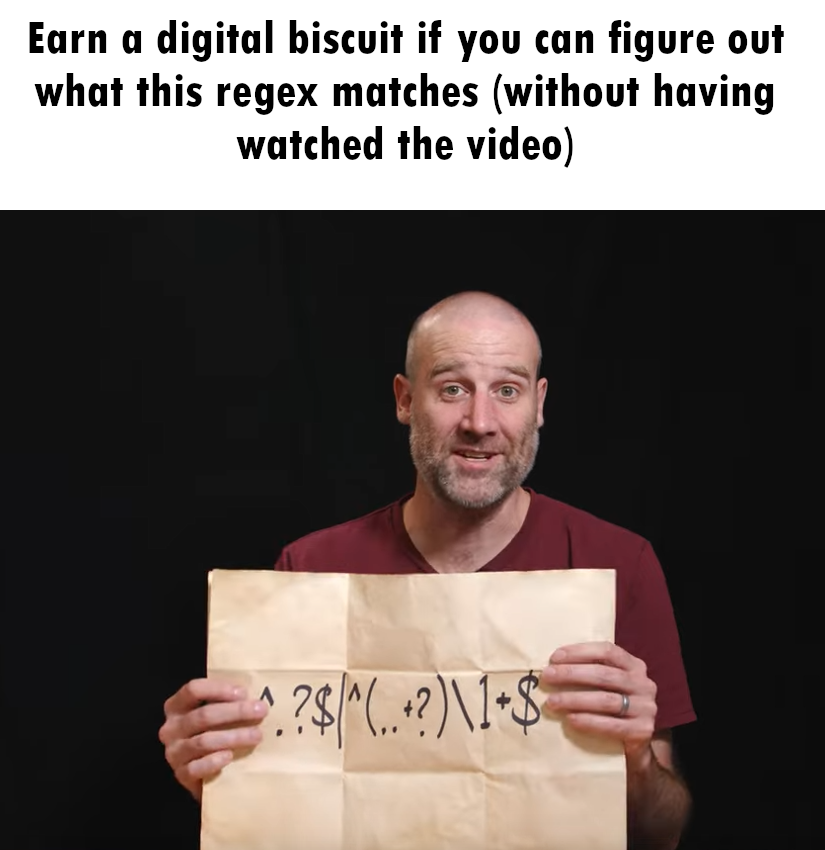this post was submitted on 31 Oct 2024
334 points (98.0% liked)
Programmer Humor
32710 readers
623 users here now
Post funny things about programming here! (Or just rant about your favourite programming language.)
Rules:
- Posts must be relevant to programming, programmers, or computer science.
- No NSFW content.
- Jokes must be in good taste. No hate speech, bigotry, etc.
founded 5 years ago
MODERATORS
you are viewing a single comment's thread
view the rest of the comments
view the rest of the comments

You got downvoted here but you're absolutely right. It's easy to prove that the set of strings with prime length is not a regular language using the pumping lemma for regular languages. And in typical StackExchange fashion, someone's already done it.
Here's their proof.
Claim 1: The language consisting of the character
1repeated a prime number of times is not regular.A further argument to justify your claim—
Claim 2: If the language described in Claim 1 is not regular, then the language consisting of the character
1repeated a composite number of times is not regular.Proof: Suppose the language described in Claim 2 is regular if the language described in Claim 1 is not. Then there must exist a finite-state automaton A that recognises it. If we create a new finite-state automaton B which (1) checks whether the string has length 1 and rejects it, and (2) then passes the string to automaton A and rejects when automaton A accepts and accepts when automaton A rejects, then we can see that automaton B accepts the set of all strings of non-composite length that are not of length 1, i.e. the set of all strings of prime length. But since the language consisting of all strings of prime length is non-regular, there cannot exist such an automaton. Therefore, the assumption that the language described in Claim 2 being regular is false.
By now, I have just one, so thanks for the assist. There's always that one (sometimes puzzling) downvote on anything factual.
The pumping lemma, for anyone unfamiliar. It's a consequence of the fact an FSM is finite, so you can construct a repeatable y just by exhausting the FSM's ability to "remember" how much it's seen.